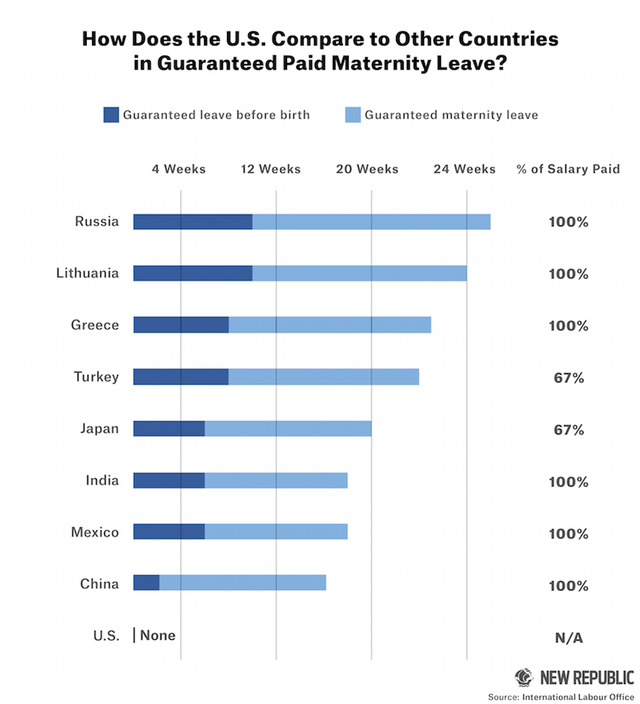How unspoken domestic roles affect a woman’s job trajectory.

Every semester, my business-occupation focused college organization hosts a weekend “retreat”. We rent out an Airbnb in a woodsy location a couple hours inland of California, pack our bags, and find refuge from busy Berkeley, California with the hopes of fostering deeper bonds between the members of our organization.
Being the rural retreat it is, the evenings pose a challenge for group coordination around who will make dinner for the day. However, by the 8th retreat, I have noticed a silent movement that ends with a sink full of dishes and even fuller bellies.
Our organization is comprised of about 50% women (if not more). Yet, in a group of 20, almost all of those women will participate in making the meal for the night. This was something that I finally pointed out last year in the Fall. I called it my “Great Feminist Speech of 2016”.
“It seemed almost natural that all the women come to help out in the kitchen, while the guys went outside to hang out. Sure, the nice guys offered, but they were so quick to give up when we didn’t have an immediate task.”
And why is that? I, as one of the women who actively jumps into the action whenever it comes time to make dinner, have always thought to myself — do I do this because I truly love cooking or do I feel an obligation to take on this role due to my gender? Meanwhile, as I pointed out, one of my close female friends who has trouble even boiling water on the stove, continued to linger around the kitchen, attempting to help but mostly feeling uncomfortable by the gender disparity. She felt that the consequences for not helping were being perceived as lazy amongst all the “industrious” women around her.
But what if we turned the tables and continued to frame the discussion on the basis of consequences on the other side? What is the consequence for being the “one guy” in the kitchen? Being perceived as effeminate or domesticated? Missing out on important conversations with the other guys outside and being made an outsider from the “boy’s club”?
Or, perhaps, what are the consequences for not helping? A possible explanation may be that there are none. This is the basis of work done by Wendy Brown, outspoken political theorist and professor at my very own UC Berkeley. In her 1992 work “Finding Man in the State”, she categorizes the world into very different spheres from simply male and female. Instead, she splits up the world into the “public” and “private” sphere. The “private” sphere is that of the home, where women become mothers and exert labor, that in a capitalist society, is inherently “unpaid work”. The “public” sphere, which is the economic and political environment of capitalism, willingly ignores the existence of the other sphere, almost in an attempt to create equality by neutralizing the inherent gendered-ness of biological fact.
Therefore, it appears that because we simultaneously expect women to take on domestic roles, yet offer no remediation for the addition of labor in pursuit of producing a false equality, we achieve the exact opposite. It should not be a “silent movement towards the kitchen”.
Rebecca Traister documented this phenomenon as the “Mommy Brain” in an article to New Republic in 2015. She recalls vomiting during a long day at her professional job due to pregnancy nauseousness. She was humiliated. She believes the reason why women comprise of 2/3 of the low-wage workforce is because their ambitions are overtaken by their roles as mothers. In fact, as discovered by in a recent study at the University of Massachusetts, women will face a salary decrease of an average of 4% per additional child they give birth to. On the other hand, men will see an average salary increase of nearly 6%. Men are actually seen as even more competent workers because of their fatherhood. Traditional masculine roles are surreptitiously used to exert power and dominance.
A careful breakdown of the “Mommy Brain” theory
Therefore, the “public” sphere is inherently affected by the “private” despite this effect not being legitimized by law. America is the only developed country in the world that does not mandate some sort of paid maternity leave. In addition, it is one of the 53% of all countries in the world that does not require some form of paternity leave.
The exorbitant prices for day care only exacerbate this problem. In 81% of U.S. cities, the average cost of childcare for two children costs more than the average rent. Under these circumstances, it seems almost impossible for any family to allow the mother to return to work after having taken the necessary few weeks required to simply give birth. This needs to change.

Maternity and paternity leave policy would do well to not only offer women the ability to remove the penalty they incur when bear children, but also highlight the domestic role of fathers in childcare and development. Affordable daycare would keep those norms of equality and equal participation going.
Countless hours go into being a mother. It’s time those hours are recognized as the labor they are. Otherwise women will never escape the kitchen — not just after motherhood, but before too.
[Originally posted on Medium.com] (http://medium.com/@michaelagines)
I don't see why anybody wants a career. There is no shame in managing your house or raising your own children. We don't need to get more women in the workplace; we need to lose the mentality that your wage determines your worth.
Downvoting a post can decrease pending rewards and make it less visible. Common reasons:
Submit
I think what michaela is trying to say is that many women don't have a choice. Certainly not everyone needs to go into the workplace, but many, many, many people do. Those that want to pursue a career should be able to do it on an equal footing.
Downvoting a post can decrease pending rewards and make it less visible. Common reasons:
Submit
You got a 28.57% upvote from @yourwhale courtesy of @maxg!
Downvoting a post can decrease pending rewards and make it less visible. Common reasons:
Submit
This post has received a 2.98 % upvote from @aksdwi thanks to: @maxg.
Downvoting a post can decrease pending rewards and make it less visible. Common reasons:
Submit
This post has received a 0.73 % upvote from @boomerang thanks to: @maxg
@boomerang distributes 100% of the SBD and up to 80% of the Curation Rewards to STEEM POWER Delegators. If you want to bid for votes or want to delegate SP please read the @boomerang whitepaper.
Downvoting a post can decrease pending rewards and make it less visible. Common reasons:
Submit
@originalworks
Downvoting a post can decrease pending rewards and make it less visible. Common reasons:
Submit
The @OriginalWorks bot has determined this post by @michaelaerica to be original material and upvoted it!
To call @OriginalWorks, simply reply to any post with @originalworks or !originalworks in your message!
Downvoting a post can decrease pending rewards and make it less visible. Common reasons:
Submit